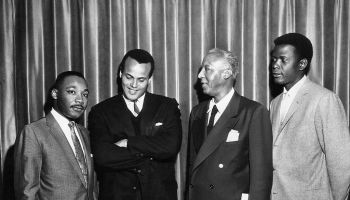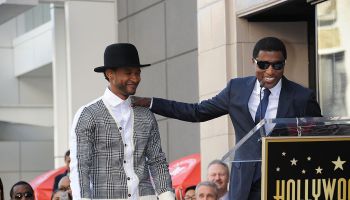The title to this post is a question I’m going to seek the answer to this Friday, September 17. That day, I am moderating a panel at the Congressional Black Caucus entitled, The Impact of Hip-Hop On American Politics, hosted by Congressman André Carson (IN-7).
Now I understand not everyone reading this can join in the discussion. After all, it does take place on a Friday, in Washington, D.C., in the afternoon (2:00 — 3:50). But that doesn’t mean I want it to be just about the voices in the room or my voices in particular. If anything, I want my voice to reflect that of the people, like any good moderator would.
When we talk about hip-hop and politics, what are we talking about here? In what ways has hip hop as a music, as a culture, affected the American political system? These are both very general questions, but this isn’t going to be one of those cliche, My-President-is-Black, My-Lambo’s-Blue, conversations. The conversation needs to be elevated and deal with what hip-hop is today and how it relates to where politics in America are today.
All that being said, I want to hear from you, people. Send me a question here in the comments or message me on Facebook.com/jozenc and let me know what you would ask one of the esteemed panelist. The question could be considered in the discussion and I promise to deliver a recap in the days after the discussion.
Go to the next few pages to find out more about the people who will be sitting on the panel.
NEXT PAGE: THE PANELIST FEATURED ON THE DISCUSSION, THE IMPACT OF HIP-HOP ON AMERICAN POLITICS AT THIS YEAR’S CONGRESSIONAL BLACK CAUCUS
[pagebreak]
9th Wonder: Originally making Hiphop beats from his North Carolina Central University dorm room using FL Studio (formerly known as Fruityloops), he has since become one of the more acclaimed producers in the Hiphop music music industry. As an up-and-coming producer, he released a remix album of Nas’ 2002 album God’s Son entitled God’s Stepson. This album began what is now a regular trend of remixing whole albums.
9th Wonder has a smooth and soulful production style that relies on samples from artists such as Al Green and Curtis Mayfield. He attributes the bass lines that he uses in production to DJ Premier, Pete Rock and J Dilla, while he claims to have learned ‘moans’ from RZA. With the help of filmmaker Tee Smith and sound engineer Young Guru, 9th Wonder landed a coveted production credit on Jay Z’s then highly-anticipated The Black Album. The producer continued to produce for Little Brother and many other Hiphop artists/groups, including Jean Grae, Skyzoo, and Murs. 9th Wonder has also produced for more widely known artists such as Destiny’s Child, Mary J. Blige, De La Soul, Mos Def, Memphis Bleek, and Buckshot from Black Moon and more recently, artists such as The Game, Lloyd Banks, and Sean Price. Recently, 9th Wonder, along with Christopher ‘Play’ Martin from the Hiphop group Kid-n-Play, were appointed Artist-In-Residence by the Chancellor of North Carolina Central University, and instruct a Hiphop history class in NCCU’s Music Department.
9th Wonder still resides in North Carolina. 9th Wonder has announced his dedication to the community in Durham, NC by joining P’Tones Records (www.ptonesrecords.com), giving students the opportunity to learn about the music industry and then further their education by earning scholarships to NCCU. Professor Kawachi Clemons and Founder (of P’Tones) Oren Rosenbaum will be opening their project January 2008, 9th will be the site’s Spokesperson. He has finished
















